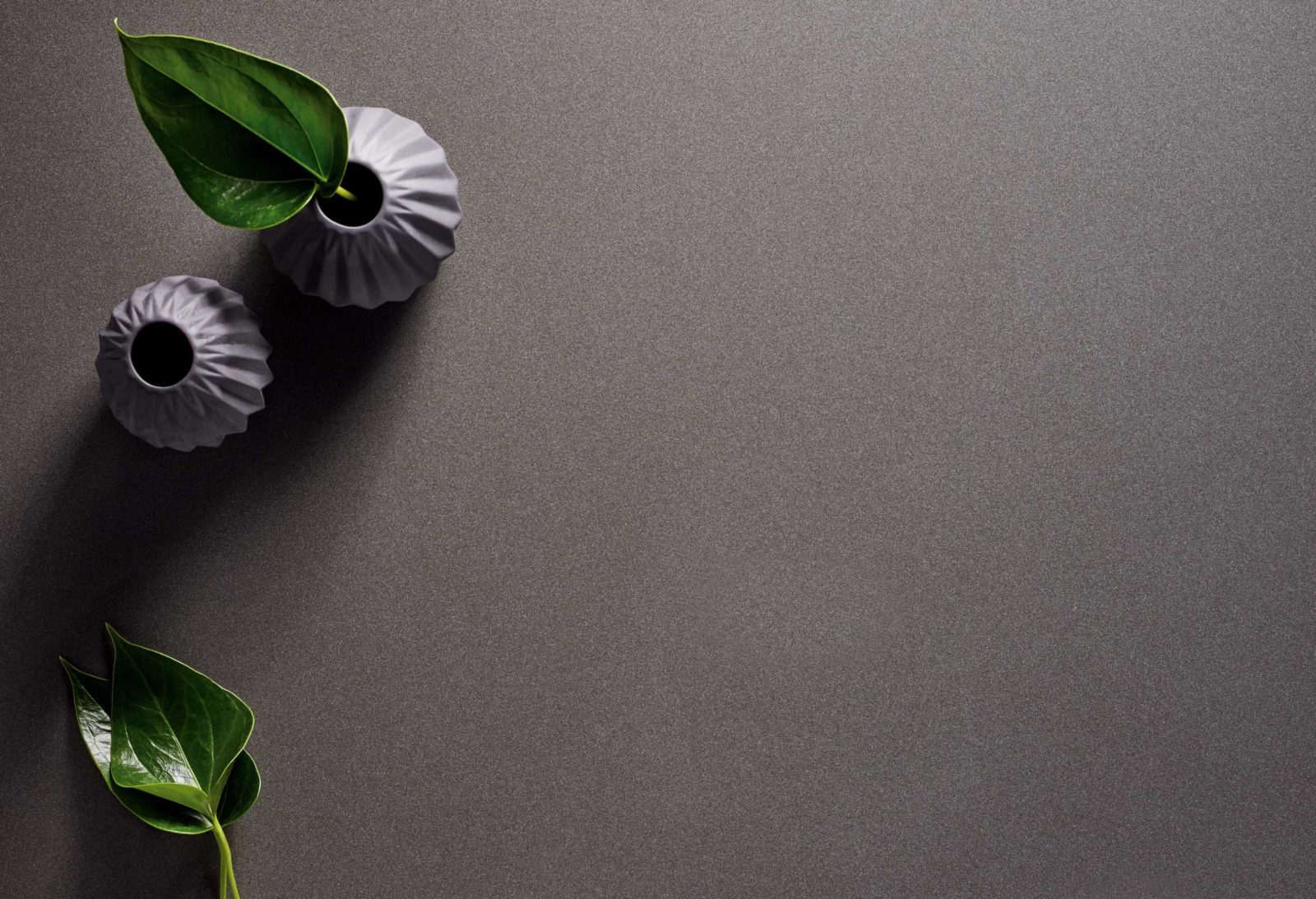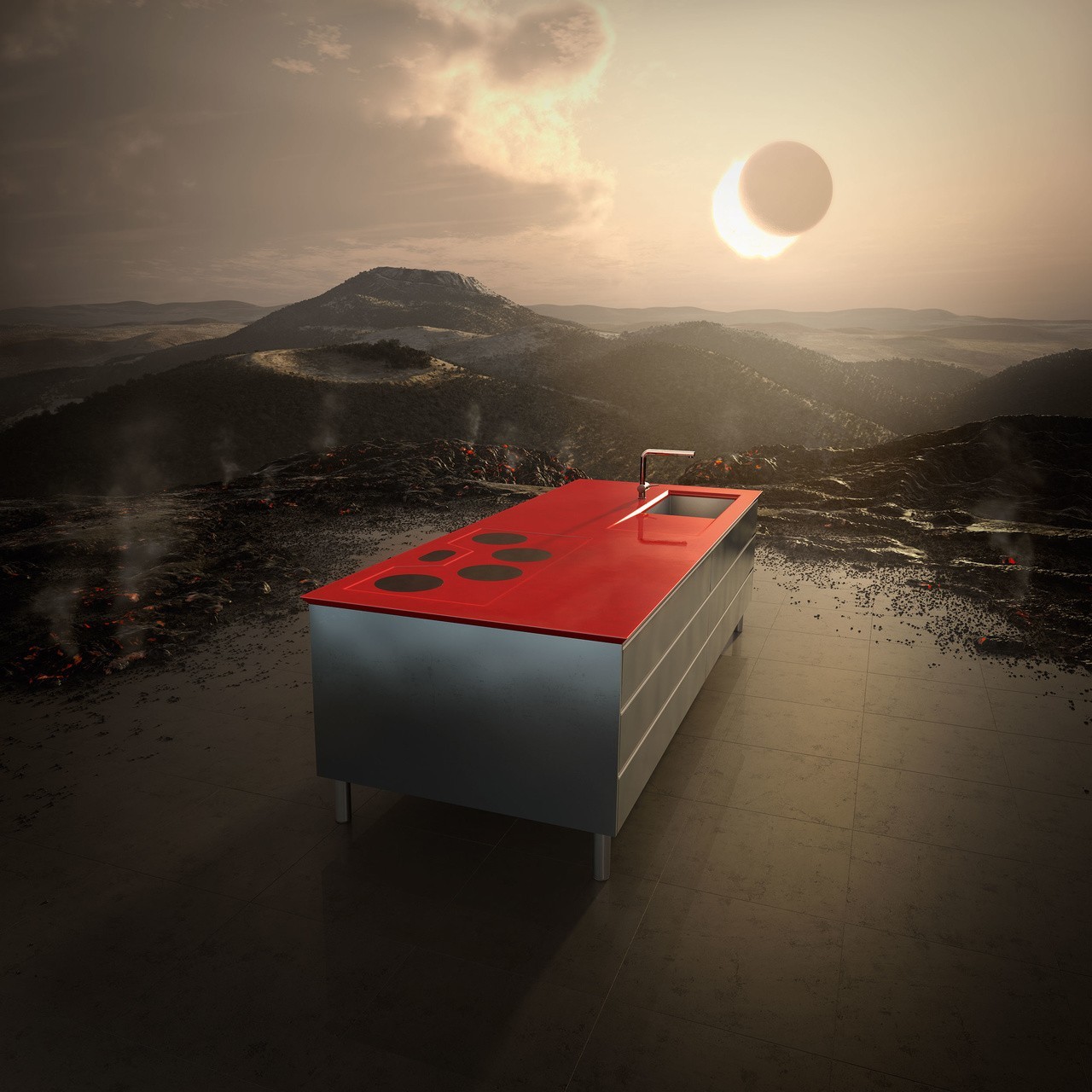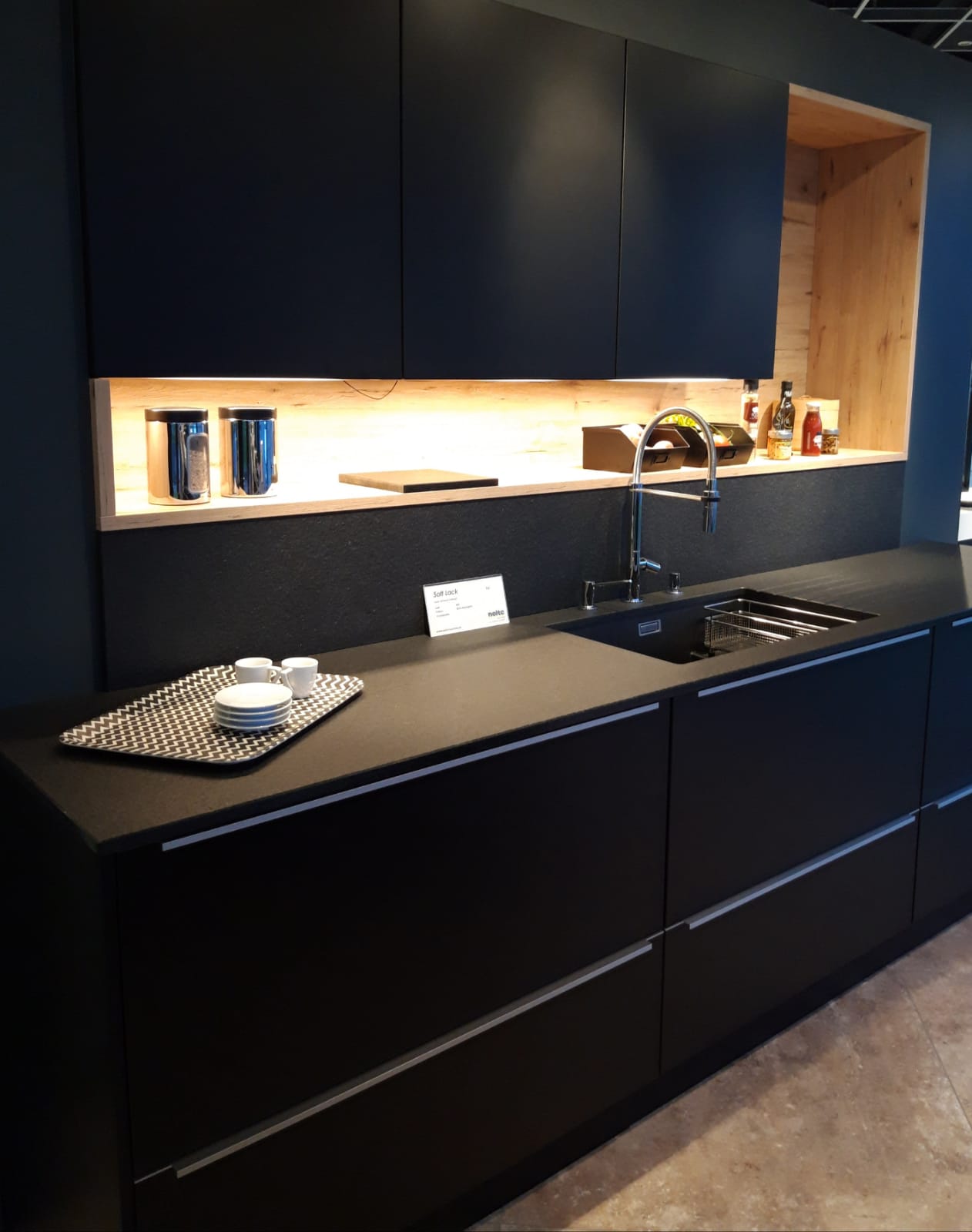CARE INSTRUCTIONS
Respect your countertop and it will stay young forever. To do that, you will need to know what’s best for it to remain like it was on the first day. Here are the fundamentals it’s time to check out if you want to be your worktop’s best friend.
EASYQUARTZ /
IDQUARTZ
CLEANING
Basic cleaning: use either a wet sponge with soap, denatured alcohol or a window cleaner. Rinse well and dry with a soft cloth.
Heavy stains: you will receive a universal stone (Pierre d’Argent®) with your countertop. Keep it safely, this 100% natural product works miracles. Put a bit of product on a sponge (not directly on the worktop as it would grease it) and clean the surface in a circular motion. Rinse well. The stain is gone.
Limescale, especially around the tap: use white vinegar or a specific product against limescale (diluted).
USE
Food that stains is welcome: your countertop will resist the ingredients commonly used in the kitchen. Wine, lemon, vinegar, coffee, fruit juice and alike will not leave persistent stains after you have cleaned.
Be careful with high temperatures: our quartz resists high temperatures. However we advise remaining cautious with extremely hot pans that could damage it. In doubt, use a trivet for very hot pans, fryers, pots or anything heated with induction plates.
Avoid scratches and impacts: use a chopping board to avoid damaging your knives or your countertop when you have to chop intensely or bone meat. Avoid thuds or falls from heavy objects as they might cause shards. The most sensitive areas are the ridges of the edge: be extra cautious to avoid impacts near the sink and the dishwasher.
Ban aggressive products: be very careful not to use alkaline products such as ammonia, solvents, cleaning solvents, detergents or any other aggressive industrial chemical product (including bleach, trichloroethane or dichloromethane).

CERAMIC /
PLANCERAM
CLEANING
Basic cleaning: use either a wet sponge with soap, denatured alcohol or a window cleaner. Rinse well and dry with a soft cloth.
Heavy stains: You will receive a universal stone (Pierre d’Argent®) with your countertop. Keep it safely: this 100% natural product works miracles. Put a bit of product on a sponge (not directly on the worktop as it would grease it) and clean in a circular motion. Rinse well. The stain is gone.
Limescale, especially around the tap: use white vinegar or a specific product against limescale (diluted).
USE
Food that stains is welcome: your countertop will resist the ingredients commonly used in the kitchen. Wine, lemon, vinegar, coffee, fruit juice and alike will not leave persistent stains after you have cleaned.
High temperatures are fine: thanks to its exceptional minerality, Plancéram ceramic resists extremely high temperatures. So fear not, you can definitely put a hot pan on it, even if it was heated with the oven or a hyperboost device.
Don’t fear scratches: ceramic is an extremely resistant material so you can use it daily without risking scratches. Simply avoid cutting with ceramic knives on the surface, for they can induce scratches.
Avoid impacts: avoid thuds from heavy objects and mincers as they might cause shards. The most sensitive areas are the ridges of the edge: be extra cautious to avoid impacts near the sink and the dishwasher.

ENAMELED LAVA /
PYROLAVE
CLEANING
Basic cleaning: use either a wet sponge with soap, denatured alcohol, acetone or a window cleaner. Rinse well and dry with a soft cloth.
For heavy stains: you can use standard cleaning products without worrying, including bleach, window cleaners and multi-use sprays. Avoid abrasive products that could scratch the surface. For metallic stains or heavier stains, use a cream cleaner and water.
Limescale, especially around the tap: use white vinegar or a specific product against limescale (diluted).
USE
Food that stains is welcome: your countertop will resist the ingredients commonly used in the kitchen. Wine, lemon, vinegar, coffee, fruit juice and alike will not leave persistent stains after you have cleaned.
High temperatures are fine: thanks to its exceptional minerality, our enamelled lava Pyrolave resists extremely high temperatures (over 572 F°). So yes, you can definitely put a hot pan on it.
Don’t fear scratches: enamelled lava is an extremely resistant material so you can use it daily without risking scratches. Simply avoid cutting directly on the surface when cutting resistant pieces such as vegetables or meats.
With time, the rubbing of kitchen utensils (pans, pots and so on) on the surface might cause micro-scratches to appear or areas to lose their shine. This is a normal ageing phenomenon and not a manufacturing default.
Avoid impacts: avoid thuds or falls from heavy or sharp objects as they might cause shards. The most sensitive areas are the ridges of the edge: be extra cautious to avoid impacts near the sink and the dishwasher.

NATURAL STONE /
NATURAPLAN
CLEANING
Basic cleaning: use either a wet sponge with soap, denatured alcohol or a window cleaner. Rinse well and dry with a soft cloth.
For heavy stains: use a Cif® like cream cleaner with a soft sponge. Rinse with tepid water and dry with a cloth. For a very resistant stain, you may use the scrubbing side of a sponge, softly, with water and a cleaning product.
Limescale, especially around the tap: use white vinegar or a specific product against limescale (diluted).
BEWARE: DO NOT USE A NATURAL UNIVERSAL STONE SUCH AS Pierre d’Argent®.
USE
Food is welcome: your countertop will resist the ingredients commonly used in the kitchen. Make sure you clean rapidly and avoid long contact with wine, lemon, vinegar, coffee, fruit juice…
High temperatures are fine: thanks to its exceptional minerality, Naturaplan resists extremely high temperatures (over 572 F°). So yes, you can definitely put a hot pan on it.
Avoid scratches and impacts: use a chopping board to avoid damaging your knives or your countertop when you have to chop intensely or to bone meat. Avoid thuds or falls from heavy objects as they might cause shards. The most sensitive areas are the ridges of the edge: be extra cautious to avoid impacts near the sink and the dishwasher.
Ban aggressive products: be very careful not to use alkaline products such as ammonia, solvents, cleaning solvents, detergents or any other aggressive industrial chemical product (including bleach, trichloroethane or dichloromethane).
